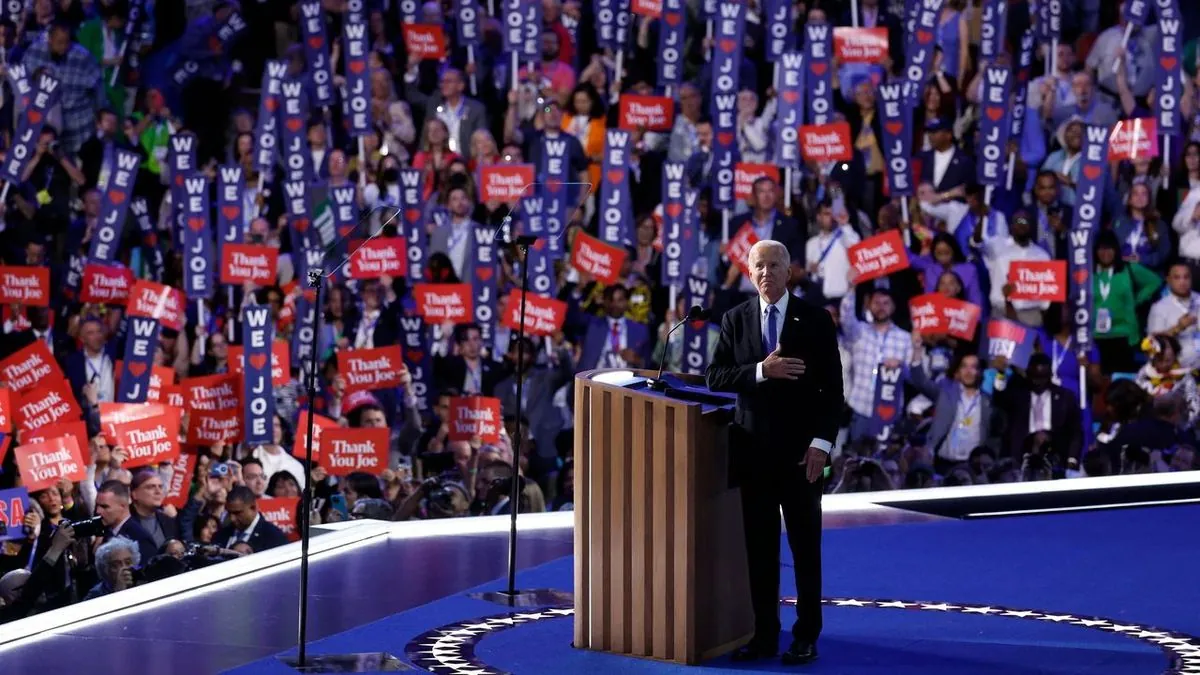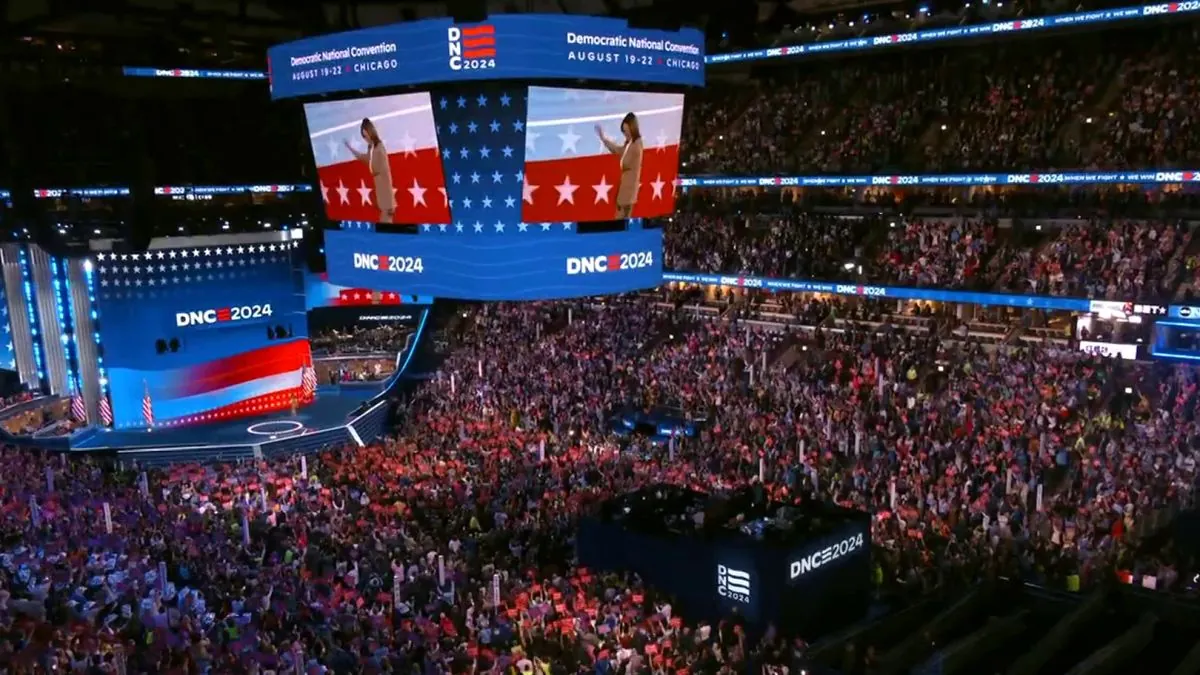Biden's Late-Night Speech Marks Democratic Party's Generational Shift
At the Democratic convention, Biden's delayed address symbolizes a party in transition. Harris's rising popularity and a new, energetic approach signal a shift towards younger leadership and a more assertive stance against Republicans.

The Democratic National Convention, a tradition dating back to 1832, witnessed a significant moment on August 19, 2024, as President Joe Biden took the stage at 11:30 PM. This late-night address, occurring just one month after Biden announced he would not seek reelection, marked a pivotal shift in the party's dynamics.
Biden's speech, while appreciated for its content, stood in stark contrast to the evening's overall tone. The president's address focused on his administration's achievements and the perceived threat from Donald Trump, adopting a more somber tone compared to the energetic atmosphere that dominated the rest of the event.

The convention's unexpected energy surge can be traced back to July 21, 2024, when Biden stepped aside in favor of Vice President Kamala Harris. This decision has led to a remarkable transformation within the Democratic Party, reminiscent of the Republican shift in 2015 when Trump's unconventional approach revitalized his party's base.
Harris, who will turn 60 this year, has seen a rapid improvement in her favorability ratings. This surge mirrors the enthusiasm gap that has emerged between the Democratic ticket and their Republican counterparts. The convention organizers attributed Biden's late start to the overwhelming response to earlier speakers, highlighting the newfound excitement within the party.
"The reason he spoke so late was that raucous applause for prior speakers stretched out the agenda more than anticipated. There was more enthusiasm than anticipated."
The event also showcased a more assertive Democratic approach, with speakers adopting a more direct stance against their opposition. This shift represents a departure from the party's previous, more reserved strategy.
Interestingly, the cancellation of a performance by six-time Grammy Award winner James Taylor to accommodate Biden's speech symbolizes the party's transition. Taylor, a favorite of older Democrats, made way for the new generation of leadership embodied by Harris and her running mate, Minnesota Governor Tim Walz.
This convention marks a significant moment in the Democratic Party's history, comparable to other milestone events such as the first televised convention in Philadelphia in 1940 or the nomination of Shirley Chisholm in 1972, the first woman to have her name placed in nomination for the presidency at a major party convention.
As the Democratic Party finalizes its metamorphosis, it appears to be reorienting itself around a different part of its coalition, embracing a more youthful and energetic approach. While Biden's moment was celebrated, it also signaled the end of an era and the beginning of a new chapter in Democratic politics.


































